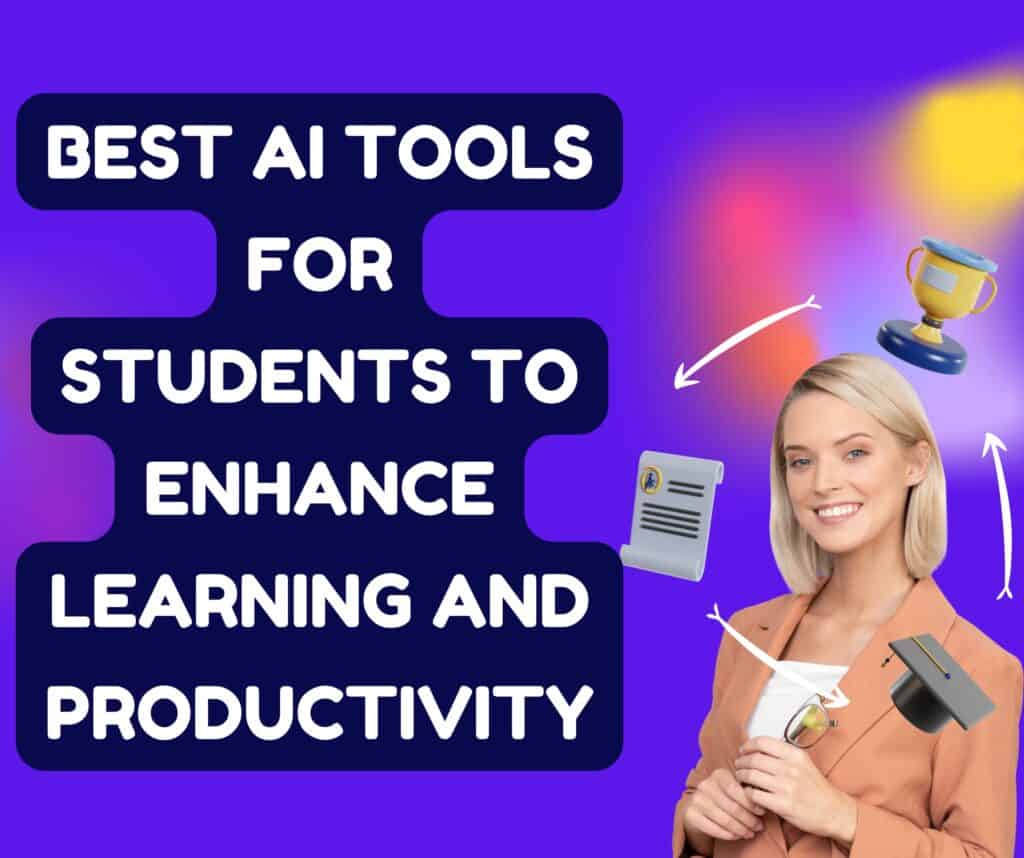In today’s digital age, coding skills have become more essential than ever. With technology shaping nearly every aspect of our lives, from the apps we use to the websites we visit, understanding how to code opens up a multitude of opportunities. Whether you’re interested in developing your own software, pursuing a career in tech, or simply enhancing your problem-solving abilities, coding can be a powerful tool.
The demand for coding proficiency spans across various industries. Companies are increasingly seeking individuals who can build and maintain digital systems, analyze data, and create innovative solutions. As a result, coding skills can significantly boost your employability and career prospects.
However, the perception that learning to code requires a hefty financial investment can be a barrier for many. The good news is that there is a wealth of high-quality, free resources available for anyone eager to learn coding. These resources offer a range of learning methods, from interactive courses and video tutorials to comprehensive guides and hands-on projects.
In this article, we’ll explore how you can take advantage of these free resources to start your coding journey. By leveraging these tools, you can gain valuable programming skills without the need for costly tuition fees or expensive textbooks.
Disclosure: This post contains affiliate links. If you make a purchase through these links, I may earn a commission. These resources provide access to essential tools and support for your online business.
Try Wealthy Affiliate (For Free).
Top Free Coding Resources
Learning to code has never been more accessible, thanks to a wide array of free resources available online. These platforms and tools offer diverse methods for acquiring coding skills, whether you prefer structured courses, interactive exercises, or video tutorials. Here’s a breakdown of some of the top free coding resources you can use to kickstart your programming journey:
Online Courses and Platforms
- Codecademy
- Overview: Codecademy offers interactive coding lessons that cover various programming languages and technologies. The platform provides hands-on exercises and real-time feedback to help learners grasp coding concepts effectively.
- Features: Beginner to advanced courses, interactive coding exercises, and a structured learning path.
- freeCodeCamp
- Overview: freeCodeCamp is a nonprofit platform that offers a comprehensive curriculum for learning web development and other coding skills. It includes interactive lessons, coding challenges, and real-world projects.
- Features: Extensive course catalog, project-based learning, and a supportive community.
- Coursera (Free Courses)
- Overview: Coursera provides access to free courses from top universities and institutions. While some courses require payment for certification, many can be audited for free, allowing learners to access course materials and lectures.
- Features: High-quality content from reputable institutions, video lectures, and quizzes.
- edX (Free Courses)
- Overview: Similar to Coursera, edX offers free courses from prestigious universities and organizations. Learners can access course materials and participate in interactive exercises without incurring costs.
- Features: University-level content, video lectures, and optional certification.
Interactive Coding Websites
- Khan Academy
- Overview: Khan Academy offers free, interactive coding courses that cover basics like HTML, CSS, and JavaScript. The platform features engaging tutorials and coding exercises.
- Features: Interactive coding environment, step-by-step tutorials, and project-based learning.
- The Odin Project
- Overview: The Odin Project provides a free, comprehensive curriculum for learning web development. It includes lessons on HTML, CSS, JavaScript, and more, along with hands-on projects.
- Features: Full-stack curriculum, practical projects, and a supportive community.
- SoloLearn
- Overview: SoloLearn is a mobile-friendly platform that offers coding lessons in various programming languages. It features a gamified learning experience with quizzes and challenges.
- Features: Interactive lessons, community-driven Q&A, and coding challenges.
YouTube Channels
- Traversy Media
- Overview: Traversy Media offers a wide range of programming tutorials and web development courses on YouTube. The channel covers various languages and frameworks with practical, project-based videos.
- Features: Clear, concise tutorials, real-world projects, and tech reviews.
- The Net Ninja
- Overview: The Net Ninja provides in-depth coding tutorials on YouTube, focusing on web development, including languages like JavaScript, CSS, and PHP. The channel offers structured series for learners at different levels.
- Features: Well-organized series, practical examples, and beginner-friendly content.
- Programming with Mosh
- Overview: Programming with Mosh delivers high-quality coding tutorials on YouTube, covering popular languages and frameworks. The channel provides clear explanations and practical coding exercises.
- Features: Comprehensive tutorials, practical exercises, and detailed explanations.
Utilizing Free Coding Communities
In addition to structured learning resources, engaging with coding communities can significantly enhance your learning experience. These communities provide valuable support, feedback, and opportunities to collaborate with other learners and professionals. Here’s how you can make the most of free coding communities:
Forums and Discussion Boards
- Stack Overflow
- Overview: Stack Overflow is one of the most popular Q&A platforms for developers. It’s a go-to resource for finding answers to specific coding problems, getting advice on best practices, and sharing knowledge.
- Features:
- A vast repository of questions and answers across various programming languages and technologies.
- Community-driven with voting systems to highlight the most useful answers.
- Tags and categories to help you find relevant topics and solutions.
- Reddit (r/learnprogramming)
- Overview: The subreddit r/learnprogramming is a community where beginners and experienced coders come together to discuss programming, share resources, and seek help. It’s a great place to ask questions, find learning materials, and connect with others who are also learning to code.
- Features:
- A supportive environment for asking questions and receiving advice.
- Threads on various topics, from beginner tips to advanced programming concepts.
- Community discussions on coding trends, tools, and resources.
Social Media Groups
- Facebook Coding Groups
- Overview: Facebook hosts numerous groups dedicated to coding and programming. These groups range from general programming discussions to language-specific communities, offering a platform to ask questions, share projects, and network with other learners.
- Features:
- Community-driven discussions and advice on coding challenges.
- Opportunities to join coding challenges and collaborative projects.
- Networking with other learners and professionals in the field.
- LinkedIn Coding Communities
- Overview: LinkedIn features several groups and communities focused on coding and technology. These groups offer professional networking opportunities, discussions on industry trends, and access to a network of professionals who can provide mentorship and guidance.
- Features:
- Professional discussions on coding practices and industry trends.
- Networking with industry experts and potential mentors.
- Access to job postings and career advice related to coding and technology.
Benefits of Participating in Coding Communities
- Real-Time Help: Engage with experienced developers who can offer immediate assistance with coding issues and debugging.
- Knowledge Sharing: Gain insights from diverse perspectives and experiences, enhancing your understanding of complex concepts.
- Networking: Build connections with fellow learners and industry professionals, which can lead to collaboration opportunities and career growth.
- Motivation and Accountability: Being part of a community can keep you motivated and accountable as you progress through your learning journey.
Free Coding Books and eBooks
Reading coding books and eBooks is an excellent way to deepen your understanding of programming concepts and improve your skills. Many classic texts and freely available eBooks can provide comprehensive knowledge and practical examples without costing a penny. Here’s how you can access and benefit from these resources:
Classic Texts
- “Eloquent JavaScript” by Marijn Haverbeke
- Overview: “Eloquent JavaScript” is a highly regarded book for learning JavaScript. It covers the language’s fundamentals as well as more advanced topics, including functional programming and modern JavaScript techniques.
- Features:
- In-depth exploration of JavaScript concepts with clear explanations.
- Practical examples and exercises to reinforce learning.
- Available online for free, making it accessible to anyone interested in JavaScript.
- “Automate the Boring Stuff with Python” by Al Sweigart
- Overview: This book is perfect for beginners who want to learn Python through practical projects. It focuses on automating everyday tasks, such as handling files and web scraping, providing hands-on experience with Python programming.
- Features:
- Practical, real-world examples and projects.
- Step-by-step instructions and explanations.
- Available online for free, with additional resources and code examples provided on the book’s website.
Ready to create your own wealth? Click to begin
Try Wealthy Affiliate (For Free).
eBooks from Open Libraries
- Project Gutenberg
- Overview: Project Gutenberg is a digital library offering over 60,000 free eBooks, including some programming and computer science texts. While it primarily focuses on classic literature, you can find a few technical books and resources that are useful for learning programming.
- Features:
- Free access to a wide range of eBooks in various formats.
- Searchable catalog to find specific books or topics.
- Downloadable content that can be read on different devices.
- Internet Archive
- Overview: The Internet Archive is a vast digital library that provides access to millions of free books, including many technical and programming texts. You can find historical and modern coding books that are available for free download or online reading.
- Features:
- Extensive collection of books and other media.
- Ability to borrow and read eBooks online or download them.
- Diverse range of programming topics and historical texts.
Benefits of Using Free Coding Books and eBooks
- In-Depth Knowledge: Books often provide comprehensive coverage of programming concepts, including theory and practical applications, which can enhance your understanding of the subject.
- Structured Learning: Classic texts and eBooks are usually organized in a logical sequence, helping you build knowledge progressively.
- Cost-Effective Learning: Accessing free eBooks and classic texts allows you to learn without financial constraints, making it easier to explore multiple resources.
- Convenience: Digital formats allow you to read on various devices, making it easy to integrate learning into your daily routine.
Building Practical Skills with Free Projects
One of the most effective ways to solidify your coding knowledge and build practical skills is by working on projects. Applying what you’ve learned through real-world projects not only reinforces your understanding but also helps you gain experience that can be showcased to potential employers. Here’s how you can leverage free projects to enhance your coding skills:
Open Source Contributions
- GitHub Projects
- Overview: GitHub is a platform where developers collaborate on open source projects. Contributing to GitHub projects allows you to work on real-world codebases, collaborate with other developers, and gain experience in version control and project management.
- How to Get Started:
- Explore Repositories: Browse through repositories that match your interests or skills. Look for issues labeled “good first issue” or “beginner-friendly” to find tasks suitable for newcomers.
- Fork and Clone: Fork a repository to create your own copy, and clone it to your local machine to start making changes.
- Submit Pull Requests: After making improvements or fixing bugs, submit a pull request to propose your changes to the original project.
- Benefits:
- Gain experience with real-world code and development workflows.
- Build a portfolio of contributions to showcase your skills.
- Connect with a global community of developers.
- GitLab Community
- Overview: GitLab is another platform for collaborating on open source projects. Like GitHub, it offers a variety of projects where you can contribute and learn from others.
- How to Get Started:
- Search for Projects: Use GitLab’s search and discovery features to find projects that interest you or align with your skill level.
- Join a Group: Many projects are organized into groups, which can provide a sense of community and additional support.
- Contribute: Engage with the community by working on issues, reviewing code, or participating in discussions.
- Benefits:
- Access to a wide range of projects and collaboration opportunities.
- Experience with GitLab’s tools and features, which are widely used in industry.
Personal Projects
- Building Your Own Website
- Overview: Creating your own website is a valuable project that allows you to practice web development skills. It involves working with HTML, CSS, and JavaScript, and can be a great way to learn about front-end and back-end development.
- How to Get Started:
- Choose a Platform: Decide whether to build a static website or use a content management system (CMS) like WordPress.
- Design and Develop: Plan your website’s layout, design, and functionality. Start coding the HTML, CSS, and JavaScript to bring your design to life.
- Deploy: Host your website on a platform like GitHub Pages, Netlify, or a traditional web host to make it accessible online.
- Benefits:
- Gain hands-on experience with web development technologies.
- Create a personal portfolio or blog to showcase your work.
- Learn about website deployment and maintenance.
- Developing Simple Apps or Games
- Overview: Building simple applications or games allows you to practice coding concepts and develop problem-solving skills. You can start with basic projects and gradually increase complexity as you gain confidence.
- How to Get Started:
- Select a Project Idea: Choose a project that interests you, such as a to-do list app, a calculator, or a simple game.
- Plan and Develop: Outline the features and functionality you want to include. Write the code and test your app or game to ensure it works as expected.
- Refine and Expand: After completing the initial version, consider adding new features or improving the design.
- Benefits:
- Apply coding concepts to practical problems and projects.
- Develop skills in areas like user interface design, application logic, and debugging.
- Create tangible projects that can be included in your portfolio or resume.
Benefits of Working on Projects
- Hands-On Experience: Practical projects provide real-world experience that complements theoretical knowledge and enhances your coding abilities.
- Portfolio Development: Projects can be showcased in your portfolio or resume, demonstrating your skills to potential employers or clients.
- Problem-Solving Skills: Working on projects helps you develop problem-solving skills as you tackle challenges and find solutions.
- Motivation and Engagement: Personal and open source projects can keep you motivated and engaged as you see tangible results from your work.
Staying Motivated and Tracking Progress
Maintaining motivation and tracking progress are crucial aspects of successfully learning to code. Setting clear goals and regularly assessing your progress can help you stay focused, overcome obstacles, and achieve your learning objectives. Here’s how you can effectively stay motivated and monitor your development:
Setting Goals and Milestones
- Short-Term vs. Long-Term Goals
- Short-Term Goals: These are smaller, manageable objectives that you aim to accomplish in the near future. Examples might include completing a specific coding course module, mastering a particular programming concept, or building a simple project. Short-term goals help you maintain a sense of accomplishment and keep you on track.
- Examples: Finish a tutorial on HTML and CSS in one week, complete five coding challenges by the end of the month.
- Long-Term Goals: These are broader objectives that you want to achieve over a longer period. Long-term goals provide direction and motivation for your overall learning journey. They could include becoming proficient in a specific programming language, developing a portfolio of projects, or landing a job as a junior developer.
- Examples: Become proficient in JavaScript by the end of the year, build and deploy a full-stack web application within six months.
- Short-Term Goals: These are smaller, manageable objectives that you aim to accomplish in the near future. Examples might include completing a specific coding course module, mastering a particular programming concept, or building a simple project. Short-term goals help you maintain a sense of accomplishment and keep you on track.
- Creating a Learning Schedule
- Overview: A structured learning schedule helps you organize your study time and ensures consistent progress. It’s essential to allocate specific times for learning and practice, balancing it with other responsibilities.
- How to Create a Schedule:
- Set Time Blocks: Dedicate specific times each day or week for coding practice. For example, 30 minutes every morning or two hours on weekends.
- Prioritize Tasks: Identify which topics or projects need the most attention and prioritize them in your schedule.
- Include Breaks: Avoid burnout by scheduling regular breaks and downtime. This helps maintain focus and keeps learning enjoyable.
- Benefits:
- Provides a clear roadmap for your learning journey.
- Helps you stay organized and committed to your goals.
- Ensures consistent progress and prevents procrastination.
Tracking Progress
- Using Coding Challenges (e.g., LeetCode, HackerRank)
- Overview: Coding challenges are an excellent way to test your skills, practice problem-solving, and improve your coding proficiency. Platforms like LeetCode and HackerRank offer a wide range of challenges that can help you assess your progress and identify areas for improvement.
- How to Use Coding Challenges:
- Set Challenges: Choose problems that match your skill level and gradually increase difficulty as you progress.
- Track Performance: Monitor your performance on different challenges to identify strengths and weaknesses.
- Review Solutions: After solving challenges, review other users’ solutions to learn new techniques and approaches.
- Benefits:
- Provides practical experience in problem-solving and algorithmic thinking.
- Helps you track progress through metrics such as completion rates and ranking.
- Offers exposure to various coding problems and solutions.
- Maintaining a Coding Journal
- Overview: Keeping a coding journal is a valuable practice for reflecting on your learning journey, documenting challenges, and tracking achievements. It can help you identify patterns in your learning process and stay motivated.
- How to Maintain a Journal:
- Daily/Weekly Entries: Write about what you’ve learned, projects you’re working on, and any challenges you’ve encountered.
- Document Solutions: Note down solutions to problems you’ve solved, along with any new concepts or techniques you’ve learned.
- Reflect and Review: Regularly review your journal to reflect on your progress, celebrate achievements, and adjust your learning strategies as needed.
- Benefits:
- Provides a personal record of your learning journey and accomplishments.
- Helps you identify areas where you need additional practice or study.
- Encourages self-reflection and continuous improvement.
Benefits of Staying Motivated and Tracking Progress
- Enhanced Focus: Clear goals and a structured schedule help you stay focused and avoid distractions.
- Increased Accountability: Tracking progress and maintaining a journal provide a sense of accountability and encourage consistent effort.
- Improved Learning: Regularly assessing your skills and achievements helps you identify strengths and areas for improvement, leading to more effective learning.
Conclusion
Learning to code is an empowering journey that opens up countless opportunities, whether you’re aiming to start a new career, enhance your current skills, or simply explore a new hobby. One of the most encouraging aspects of this journey is the wealth of free resources available, which can make coding accessible to everyone, regardless of budget.
Launch your online career now. Click below!
Try Wealthy Affiliate (For Free).
Recap of the Importance of Using Free Resources for Learning Coding
Free resources play a crucial role in democratizing education and making coding accessible to a broader audience. They provide a cost-effective way to acquire valuable skills and knowledge without the financial burden of expensive courses or textbooks. By leveraging online platforms, interactive websites, and open source communities, you can gain high-quality education and hands-on experience without spending money.
- Variety of Learning Options: From online courses and interactive coding platforms to classic texts and community forums, free resources offer diverse methods to learn and practice coding.
- Real-World Experience: Engaging with open source projects and personal coding projects allows you to apply theoretical knowledge to practical scenarios, enhancing your problem-solving skills and technical expertise.
- Community Support: Forums and social media groups provide a supportive environment where you can seek help, share knowledge, and connect with others who are on similar learning paths.
Encouragement to Start Exploring and Applying the Resources Mentioned
As you embark on your coding journey, take advantage of the free resources outlined in this article. Start by exploring online courses and interactive websites to build a solid foundation. Engage with coding communities to seek advice, share your progress, and collaborate with others. Dive into classic texts and eBooks to deepen your understanding and gain insights from established authors.
- Take the First Step: Choose a resource that aligns with your learning style and begin exploring it. Whether it’s a coding challenge on LeetCode or a project on GitHub, starting small can lead to significant progress.
- Stay Consistent: Set short-term and long-term goals, create a learning schedule, and track your progress to maintain motivation and focus.
- Apply Your Knowledge: Work on personal projects and contribute to open source to gain practical experience and build a portfolio that showcases your skills.
Final Thoughts on the Benefits of Continuous Learning and Practice in Coding
Continuous learning and practice are essential for mastering coding and staying relevant in the ever-evolving tech industry. The field of programming is dynamic, with new technologies and practices emerging regularly. By committing to lifelong learning, you ensure that your skills remain current and adaptable to new challenges.
- Adaptability: Ongoing learning helps you stay up-to-date with the latest trends and technologies, making you more adaptable to changes in the industry.
- Skill Enhancement: Regular practice and exploration of new concepts deepen your understanding and improve your coding abilities.
- Career Growth: Continuous learning opens doors to new opportunities and career advancement, allowing you to take on more complex projects and responsibilities.
In summary, leveraging free resources, setting clear goals, and maintaining a consistent learning routine will greatly enhance your coding journey. Embrace the opportunities provided by these resources, stay motivated, and commit to continuous improvement. Your dedication to learning and practice will pave the way for a successful and rewarding career in coding.
We’d love to hear from you! What free coding resources have you found most helpful on your learning journey? Share your experiences, tips, or any questions you have in the comments below. Let’s support each other in mastering coding together!







